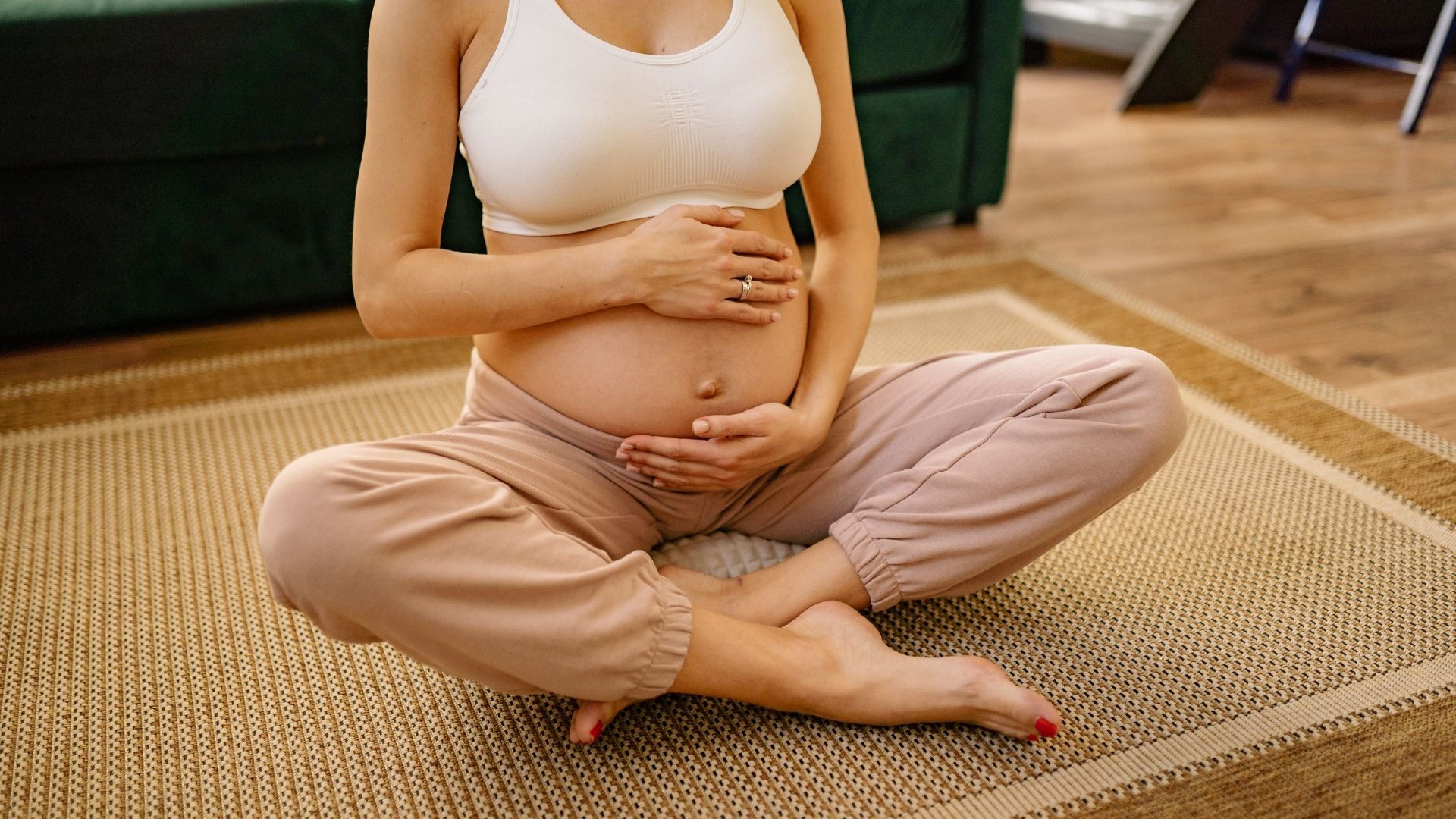Inhaltsverzeichnis
- Was ist der Schwangerschaftswochen-Rechner?
- Wie funktioniert der Schwangerschaftswochen-Rechner?
- Warum den Schwangerschaftswochen-Rechner verwenden?
- Wie man den Schwangerschaftswochen-Rechner verwendet
- Bedeutung des Verfolgens der Schwangerschaftswochen
- Faktoren, die die Schwangerschaftsdauer beeinflussen
- Tipps für eine gesunde Schwangerschaft
Letzte Aktualisierung: 18. Juli 2024.
Verstehen des Schwangerschaftswochen-Rechners: Ein Elternratgeber

Die Schwangerschaft ist eine aufregende Reise voller Erwartungen, Fragen und Meilensteine. Einer der ersten Schritte auf dieser Reise ist es, den Fortschritt Ihrer Schwangerschaft zu verfolgen. Der Schwangerschaftswochen-Rechner auf CalculatorAX ist ein unverzichtbares Werkzeug, das werdenden Eltern hilft, ihre Schwangerschaft Woche für Woche zu verfolgen. In diesem Blogbeitrag werden wir erklären, wie dieser Rechner funktioniert, warum er wichtig ist, und Tipps für eine gesunde Schwangerschaft geben.
Was ist der Schwangerschaftswochen-Rechner?
Der Schwangerschaftswochen-Rechner hilft werdenden Eltern, wichtige Meilensteine ihrer Schwangerschaft basierend auf dem ersten Tag ihrer letzten Periode (LMP) zu bestimmen. Durch Eingabe dieses Datums liefert der Rechner folgende Details:
- Schwangerschaftswoche: Aktuelle Schwangerschaftswoche.
- Geschätztes Geburtsdatum: Voraussichtlicher Geburtstermin.
- Wie viele Tage bis zur Geburt: Countdown bis zum erwarteten Geburtstermin.
- Geschätzter Geburtstag: Das wahrscheinliche Geburtsdatum des Babys.
Wie funktioniert der Schwangerschaftswochen-Rechner?
Der Rechner bietet eine einfache und effiziente Möglichkeit, den Schwangerschaftsverlauf ohne manuelle Berechnungen zu verfolgen. Zu wissen, in welcher Schwangerschaftswoche Sie sind, hilft bei:
- Terminplanung: Sicherstellung rechtzeitiger pränataler Untersuchungen.
- Vorbereitung: Vorbereitung auf die Ankunft des Babys.
- Überwachung der Entwicklung: Verfolgung der Wachstums- und Entwicklungsstadien des Babys.
"Die Verwendung von Werkzeugen wie dem Schwangerschaftswochen-Rechner, um Ihre Schwangerschaft Woche für Woche zu verfolgen, ist entscheidend. Es hilft, die Entwicklung Ihres Babys zu überwachen und Gesundheitsmeilensteine zu verwalten, um sicherzustellen, dass sowohl Sie als auch Ihr Baby während der gesamten Schwangerschaft gesund und wohlauf bleiben."
Wie man den Schwangerschaftswochen-Rechner verwendet
Die Verwendung des Schwangerschaftswochen-Rechners auf CalculatorAX ist einfach:
- Geben Sie den ersten Tag Ihrer letzten Periode ein: Verwenden Sie das Format "dd.mm.yyyy".
- Klicken Sie auf Berechnen: Der Rechner verarbeitet die Informationen und liefert die aktuelle Schwangerschaftswoche, das geschätzte Geburtsdatum, die Tage bis zur Geburt und den geschätzten Geburtstag.
Bedeutung des Verfolgens der Schwangerschaftswochen
Das Verfolgen Ihrer Schwangerschaft Woche für Woche ist aus mehreren Gründen wichtig:
Verständnis der Entwicklung des Babys
Jede Schwangerschaftswoche bringt bedeutende Veränderungen in der Entwicklung des Babys mit sich. Zu wissen, in welcher Woche Sie sich befinden, hilft werdenden Eltern zu verstehen, was im Mutterleib passiert.
Gesundheits- und Wohlfühlmanagement
Bestimmte Symptome und Gesundheitsüberlegungen sind spezifisch für verschiedene Stadien der Schwangerschaft. Das Verfolgen der Wochen ermöglicht ein besseres Management dieser Veränderungen, um die Gesundheit der Mutter und des Babys zu gewährleisten.
Vorbereitung auf Meilensteine
Vom ersten Herzschlag bis zum ersten Ultraschall hilft Ihnen das Wissen um Ihre Schwangerschaftswoche, sich auf diese unvergesslichen Meilensteine vorzubereiten.
Faktoren, die die Schwangerschaftsdauer beeinflussen
Während der Schwangerschaftswochen-Rechner eine geschätzte Zeitachse liefert, können mehrere Faktoren die tatsächliche Dauer der Schwangerschaft beeinflussen:
Genetische Faktoren
Die Genetik kann eine Rolle bei der Bestimmung der Schwangerschaftsdauer spielen. Wenn es in der Familie eine Geschichte von längeren oder kürzeren Schwangerschaften gibt, kann dies Ihre eigene beeinflussen.
Gesundheits- und medizinische Bedingungen
Bestimmte medizinische Bedingungen und Gesundheitsfaktoren, wie Schwangerschaftsdiabetes oder Präeklampsie, können die Dauer der Schwangerschaft beeinflussen und erfordern eine enge Überwachung.
Lebensstilfaktoren
Lebensstilentscheidungen, einschließlich Ernährung, Bewegung und Stressniveau, können die Schwangerschaftsdauer beeinflussen. Ein gesunder Lebensstil ist für eine reibungslose Schwangerschaft unerlässlich.
Tipps für eine gesunde Schwangerschaft
Eine gesunde Schwangerschaft zu gewährleisten, umfasst mehrere Schritte. Hier sind einige wesentliche Tipps:
Sprechen Sie mit Ihrem Arzt
Vor und während der Schwangerschaft ist es wichtig, Ihre Krankengeschichte und alle medizinischen Bedingungen mit Ihrem Arzt zu besprechen. Dazu gehören:
- Aktuelle medizinische Bedingungen: Alle bestehenden Gesundheitsprobleme.
- Medikamente: Verschreibungspflichtige und rezeptfreie Medikamente, Nahrungsergänzungsmittel und Vitamine.
- Impfungen: Notwendige Impfungen.
- Lebensstil und Verhalten: Gewohnheiten und Lebensstilentscheidungen.
Nehmen Sie täglich Folsäure
Der Verzehr von 400 Mikrogramm Folsäure täglich, mindestens einen Monat vor und während der Schwangerschaft, hilft, schwere Geburtsfehler im Gehirn und Rückenmark des Babys zu verhindern. Um mehr über Folsäure zu erfahren, lesen Sie den Artikel auf der Website des CDC.
Vermeiden Sie schädliche Substanzen
Vermeiden Sie Rauchen, Alkohol und bestimmte Drogen. Diese können zu Komplikationen wie Frühgeburt, Geburtsfehlern und Säuglingstod führen. Wenn Sie Hilfe beim Aufhören benötigen, suchen Sie Unterstützung bei Gesundheitsdienstleistern oder lokalen Selbsthilfegruppen.
Halten Sie ein gesundes Gewicht
Über- oder Untergewicht kann während der Schwangerschaft Risiken darstellen. Streben Sie an, ein gesundes Gewicht vor der Empfängnis und während der gesamten Schwangerschaft zu erreichen und zu halten.
Bleiben Sie aktiv
Regelmäßige körperliche Aktivität ist während der Schwangerschaft vorteilhaft. Sie hilft, das Gewicht zu kontrollieren, Stress zu reduzieren und bereitet Ihren Körper auf die Geburt vor.
Überwachen Sie Ihre psychische Gesundheit
Die psychische Gesundheit ist während der Schwangerschaft entscheidend. Wenn Sie anhaltende Gefühle von Angst, Traurigkeit oder Stress erleben, suchen Sie Hilfe bei einem Gesundheitsdienstleister.
Erfahren Sie mehr über Ihre Familiengeschichte
Das Verständnis der Gesundheitsgeschichte Ihrer Familie kann helfen, potenzielle Risiken und Bedingungen zu identifizieren, die Ihre Schwangerschaft beeinflussen könnten. Diese Informationen sind für genetische Beratung und Planung von entscheidender Bedeutung.
Vermeiden Sie giftige Substanzen
Begrenzen Sie die Exposition gegenüber schädlichen Chemikalien und Umweltschadstoffen. Dazu gehören synthetische Chemikalien, bestimmte Metalle und Substanzen wie Düngemittel, Insektenspray und Tierkot.
Der Schwangerschaftswochen-Rechner auf CalculatorAX ist ein wertvolles Werkzeug für werdende Eltern, das wichtige Informationen über den Fortschritt der Schwangerschaft liefert und bei der Planung der aufregenden Reise hilft. Durch Information und proaktive Maßnahmen können Sie eine gesunde und freudige Schwangerschaftserfahrung sicherstellen.
- CDC - Über Schwangerschaft "Über Schwangerschaft."
- UNICEF - Ihr Leitfaden für das erste Trimester "Ihr Leitfaden für das erste Trimester."
- Better Health - Schwangerschaft Woche für Woche "Schwangerschaft Woche für Woche."